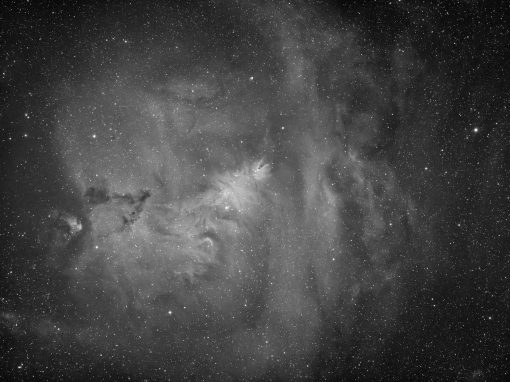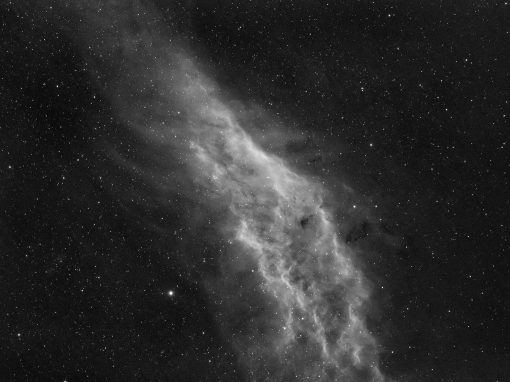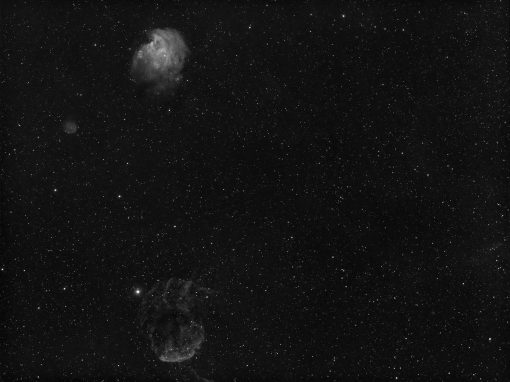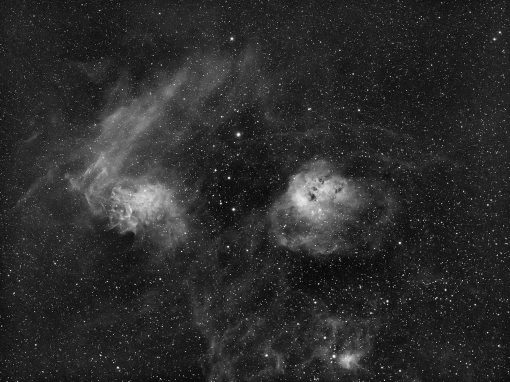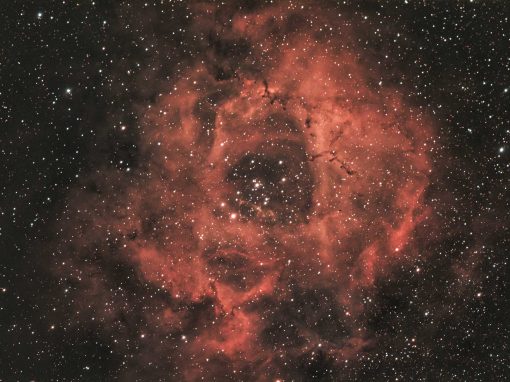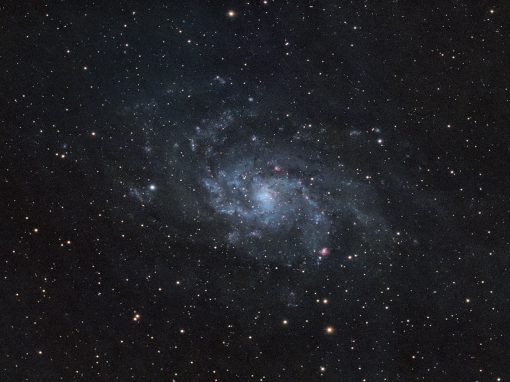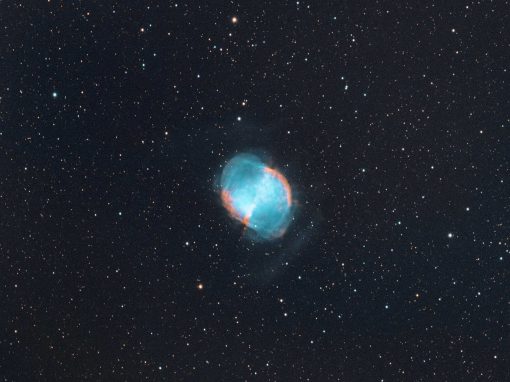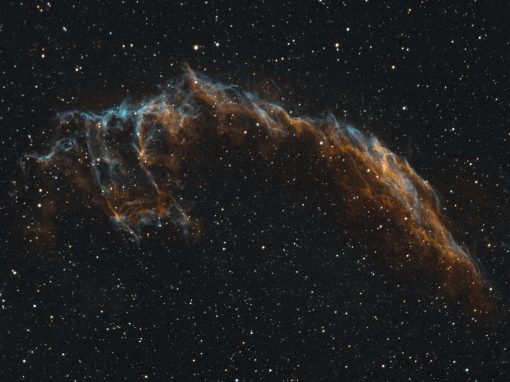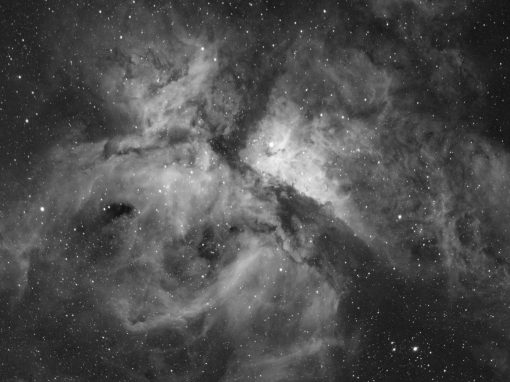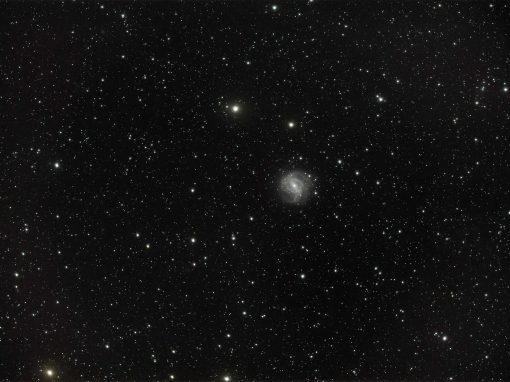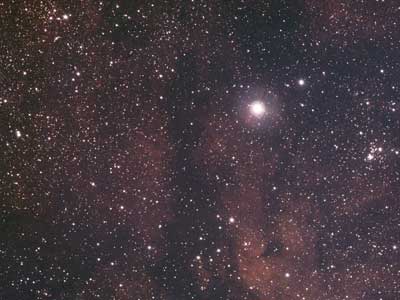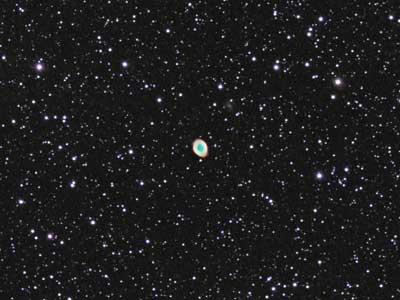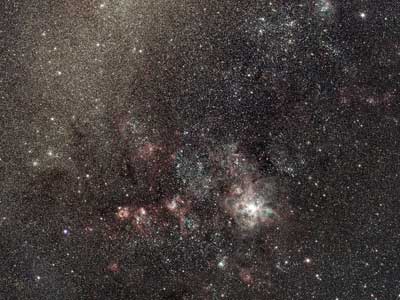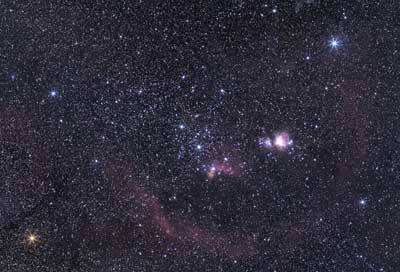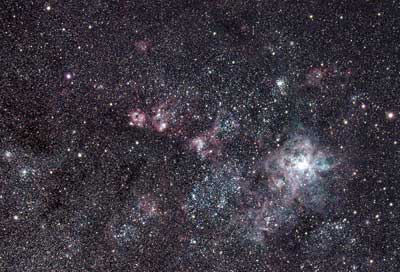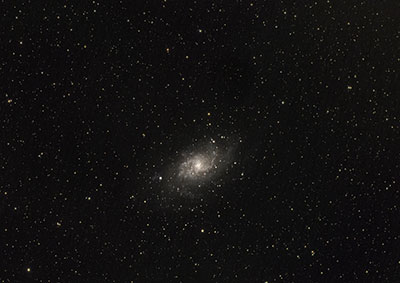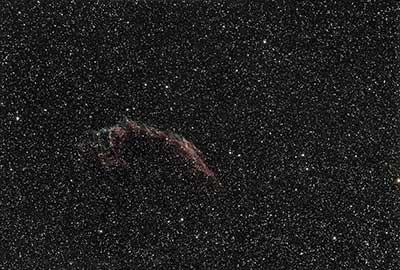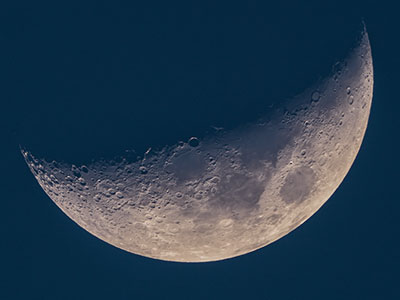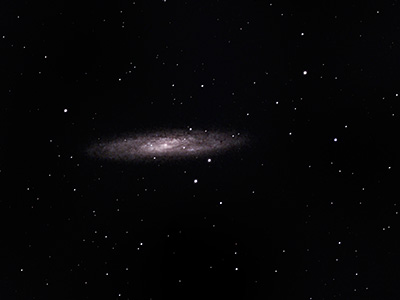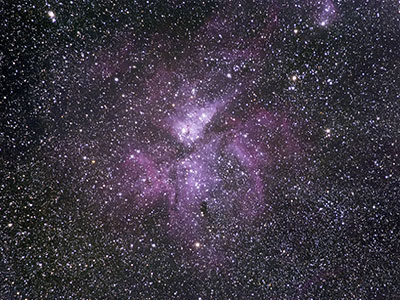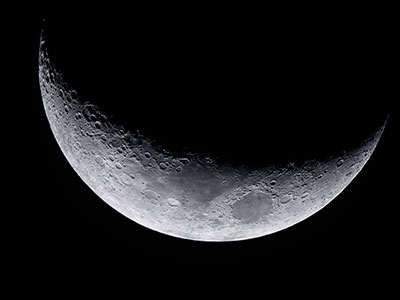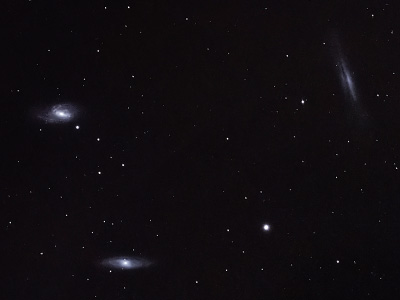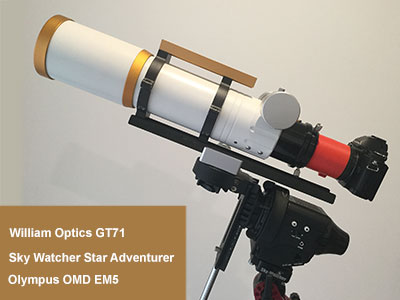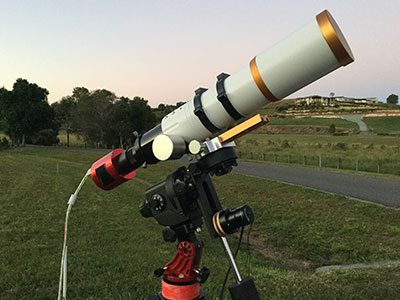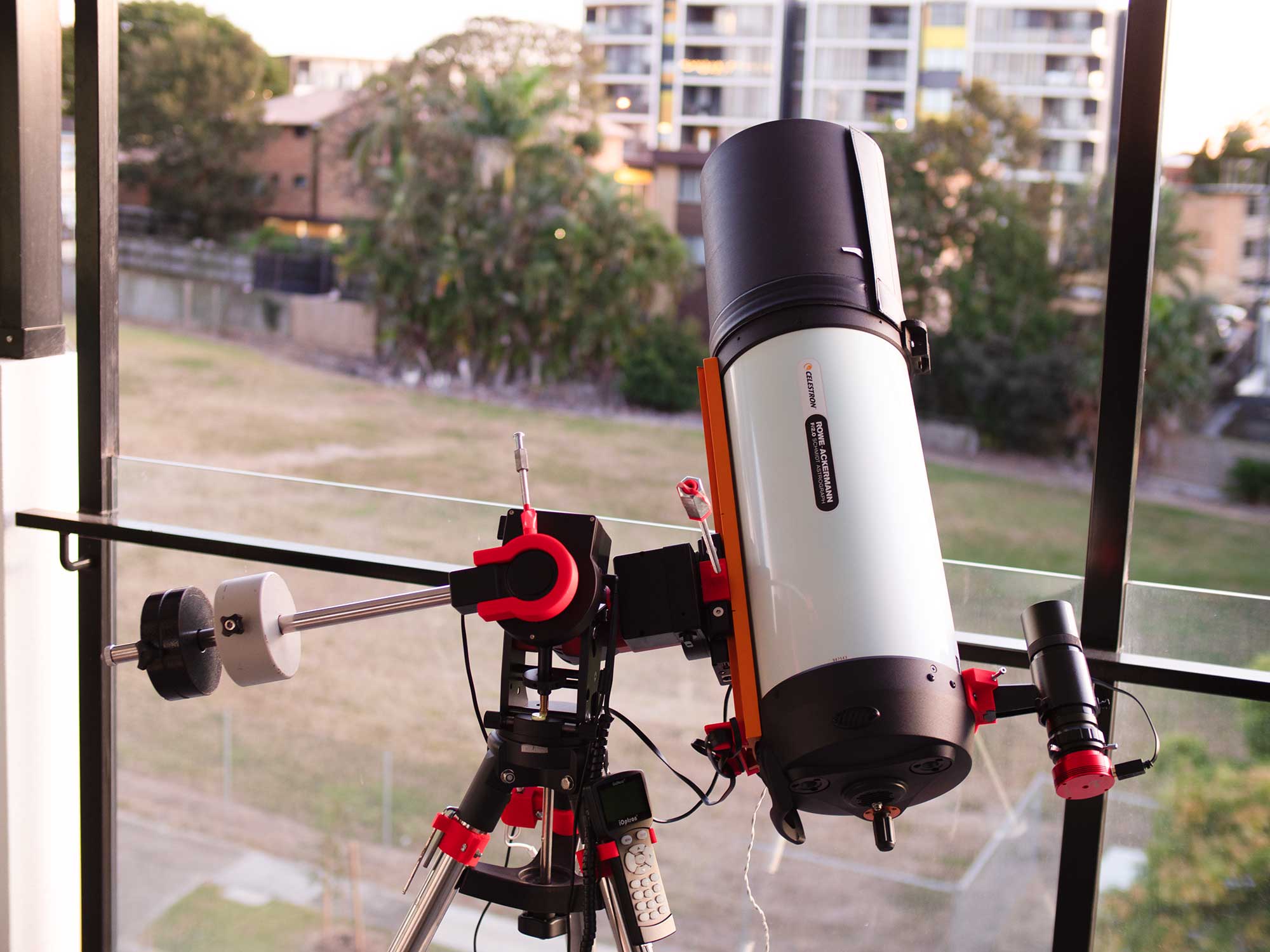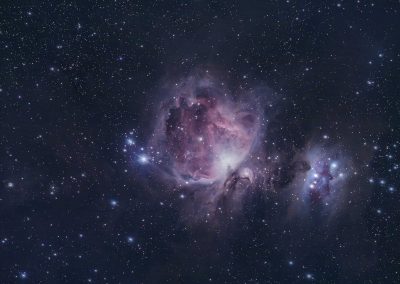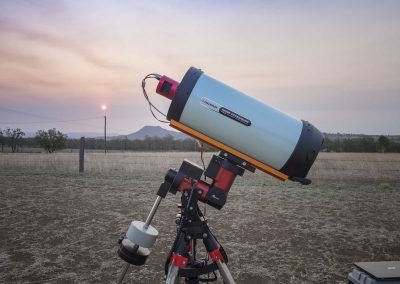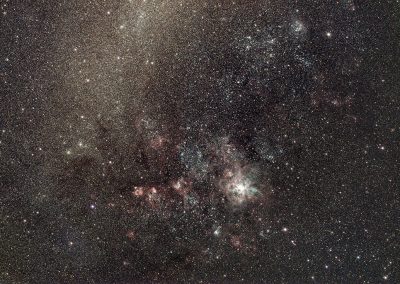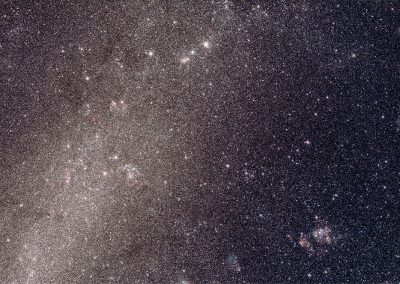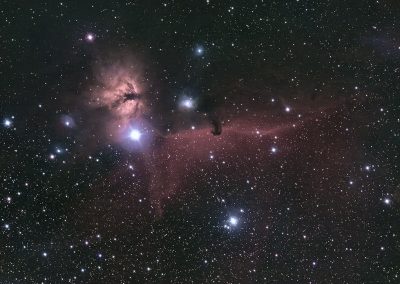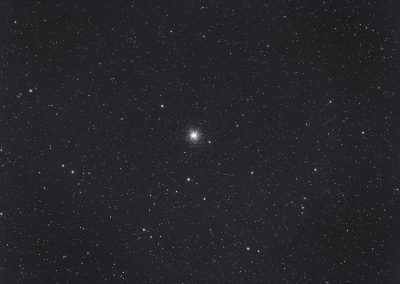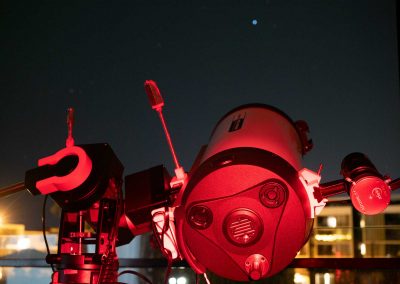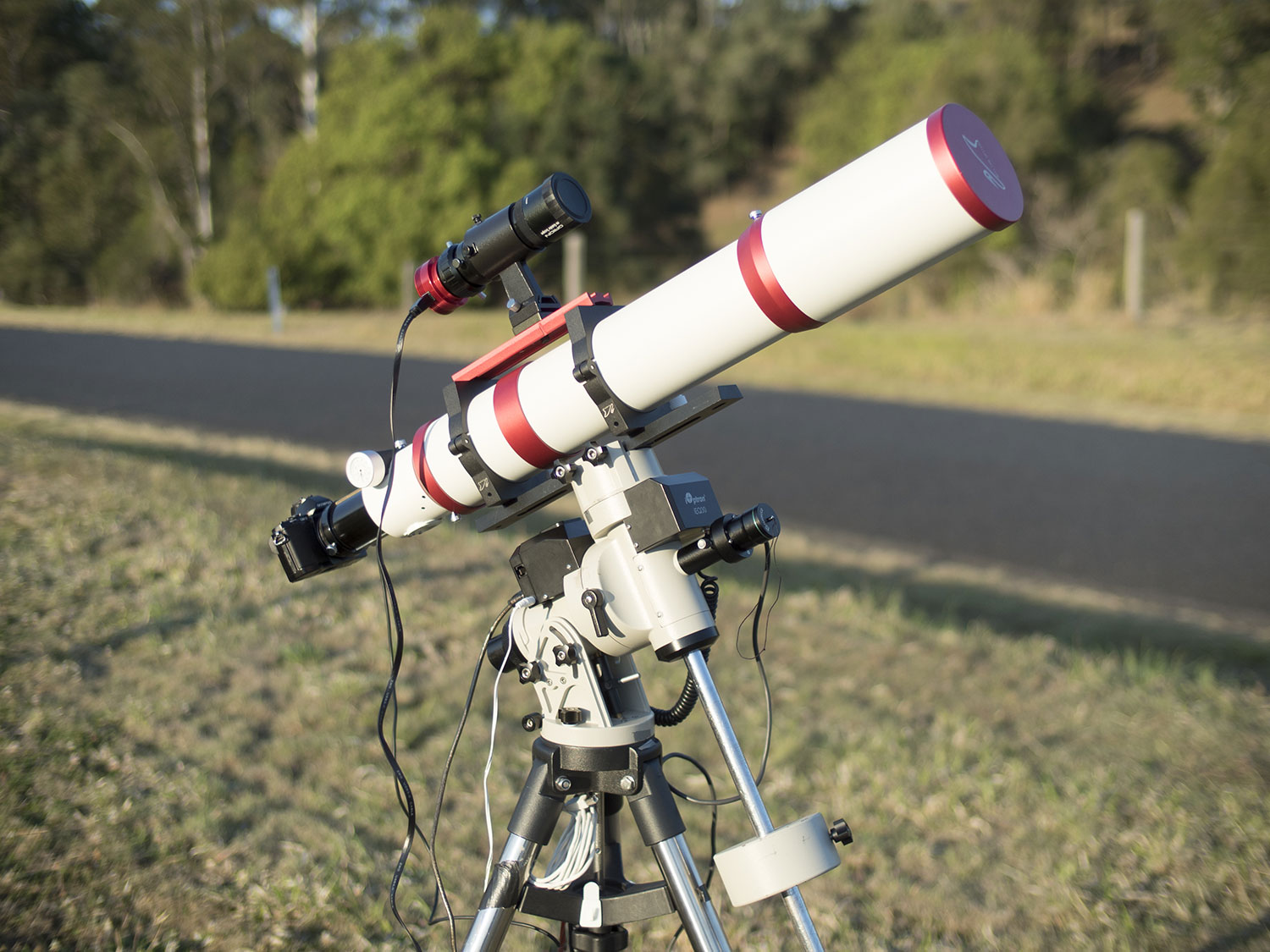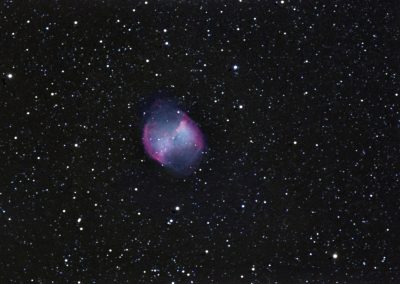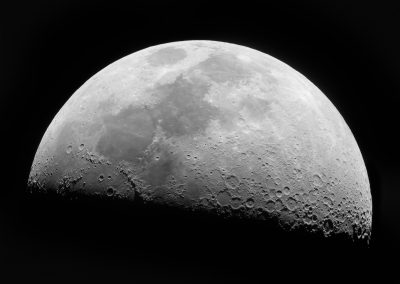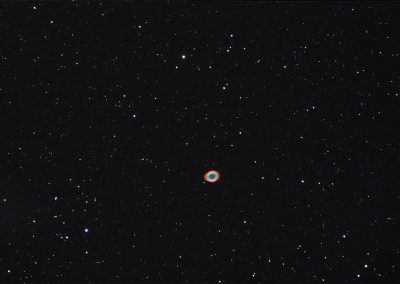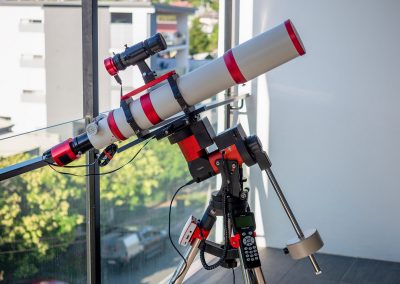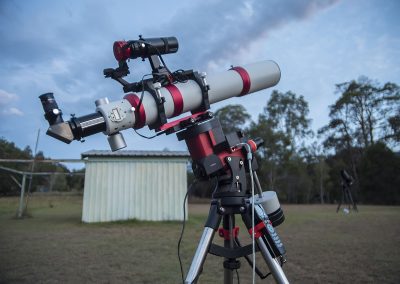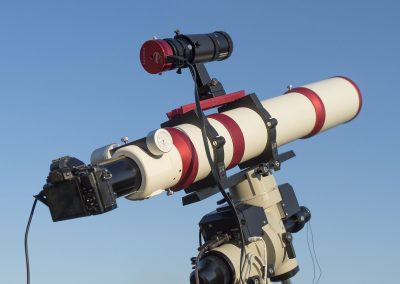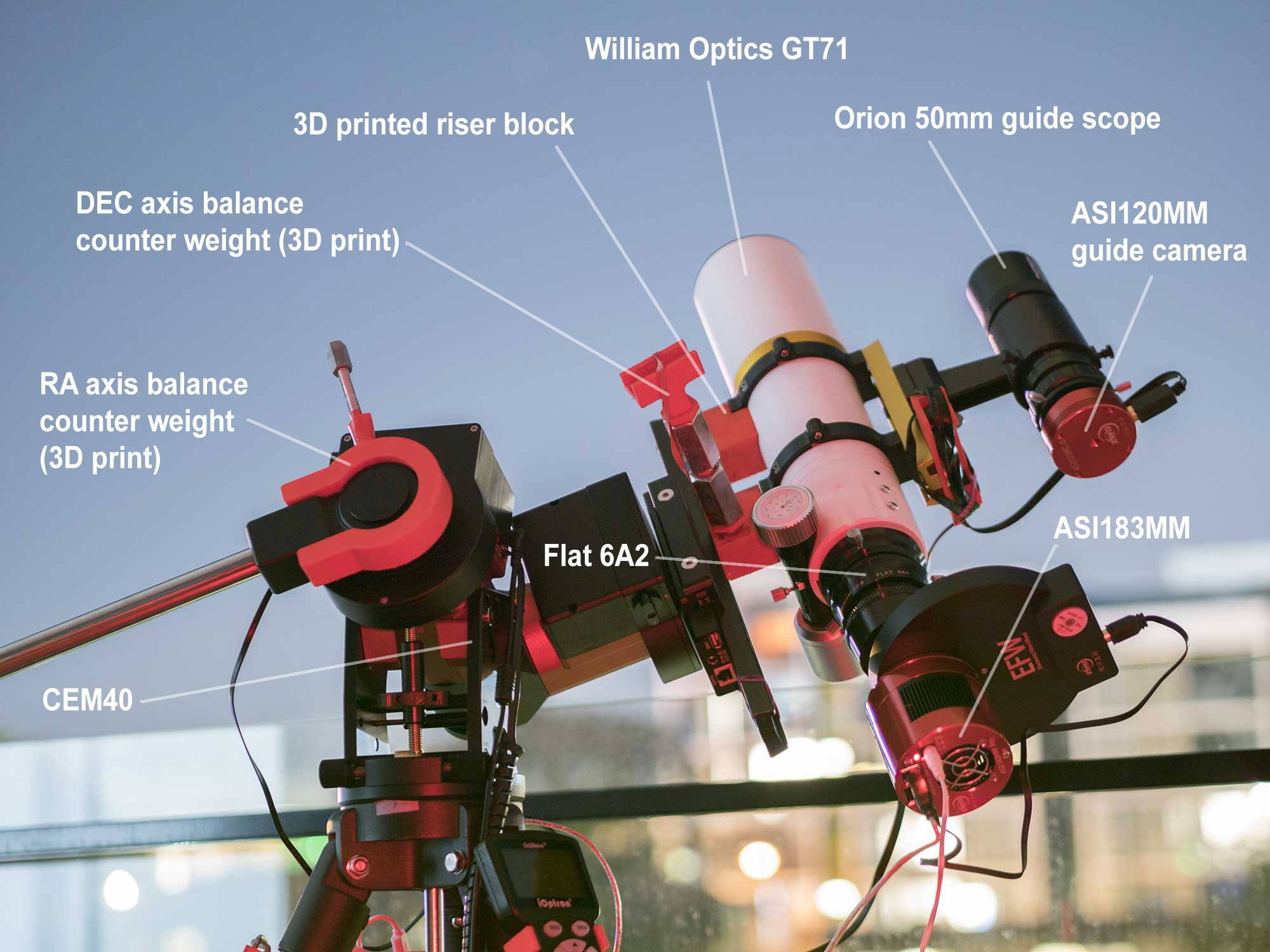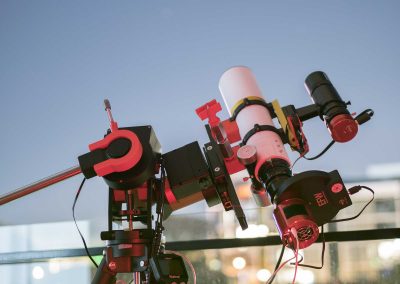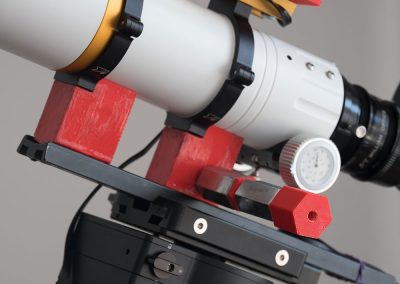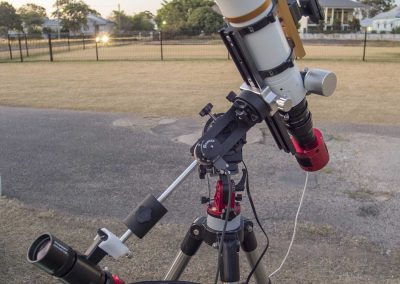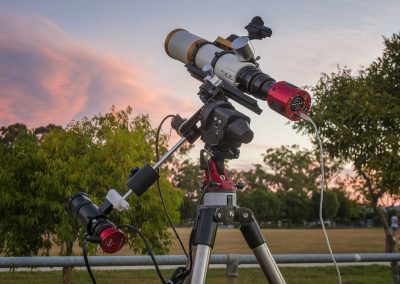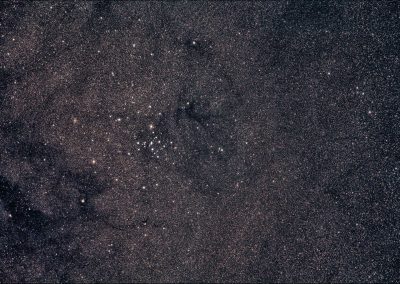Telescopes
Eyes to the skies
I have a range of telescopes for different purposes and occasions. My latest addition is the ultra fast RASA8 F2. When you have the need for speed, the RASA8 delivers in spades. Imaging times when using the sensitive ASI294Mc Pro colour camera attached are astonishing and I am able to capture enough data of celestial objects in under 30 minutes (from dark sky sites). The RASA8 is perfect for nebula and large galaxies. My portable “grab and go” telescope with a similar field of view is the William Optics GT71 f5.9 refractor. For planetary nebular and galaxies, I turn to the William Optics GTF102 f6.9 refractor.
RASA8
- Manufacturer: Celestron
- Telescope type: Rowe Akerman Schmidt Astrograph
- Focal ratio: f2
- Focal length: 400mm
- Aperture:201mm
- Weight: 8Kg
M56 captured with the RASA8 & ASI294MC Pro colour camera
M56 captured with the RASA8 & ASI294MC Pro colour camera
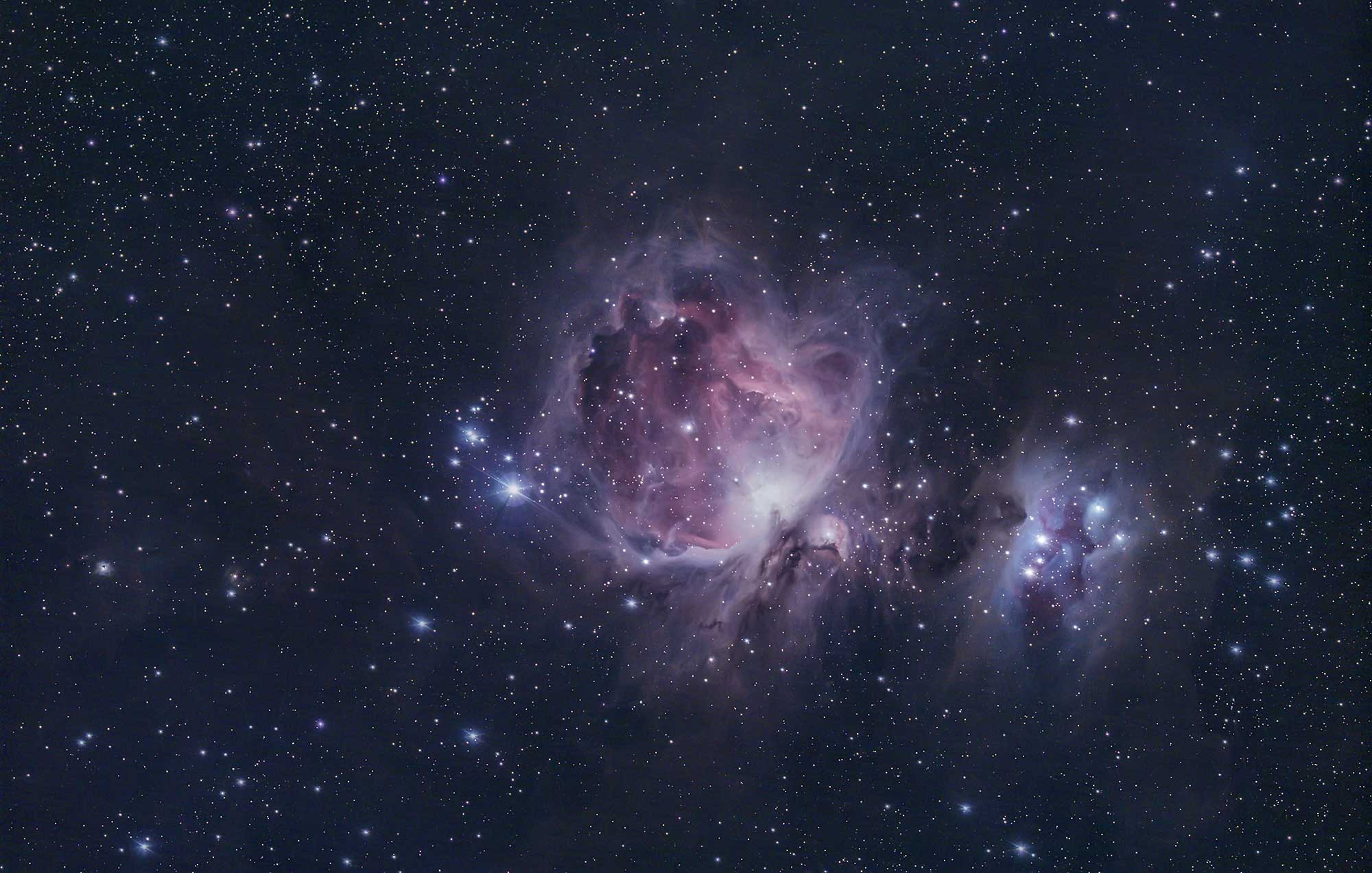
William Optics GTF102
- Manufacturer: William Optics
- Telescope type: Refractor
- Focal ratio: f6.9
- Focal length: 703mm
- Aperture:102mm
- Weight: 5.0Kg
- Resolving Power: 1.13 arc”
- Limiting Magnitude: 13.9
The William Optics GTF 102 is a 5 element APO telescope designed for both visual and photographic use. It features a 5-element objective using high-quality FPL-53 glass and combined with other extra-low dispersion glass provides an exceptionally flat field, perfect for imaging. Unfortunately William Optics has ceased production of these outstanding 5 element APO’s.
I have imaged with this telescope using a variety of cameras including the Olympus OMD EM5, SBIG ST-10XME and ASI294MC Pro.
Sculpture Galaxy NGC 253 William Optics GT 102 ASI 294
Sculpture Galaxy NGC 253 William Optics GT 102 ASI 294 astrophotography camera
M27 William Optics GTF102 Televue Powermate ASi294MC Pro
Planetary nebula astrophotography with William Optics GT102 and ASI 294 MC Pro M27
M57 William Optics GT 102 Televue Powermate ZWO ASi 294 MC Pro
M57 William Optics GT 102 Televue Powermate ZWO ASi 294 MC Pro
William Optics GTF102 on the CEM40 mount balcony astrophotography
William Optics GTF102 on the CEM40 mount balcony astrophotography
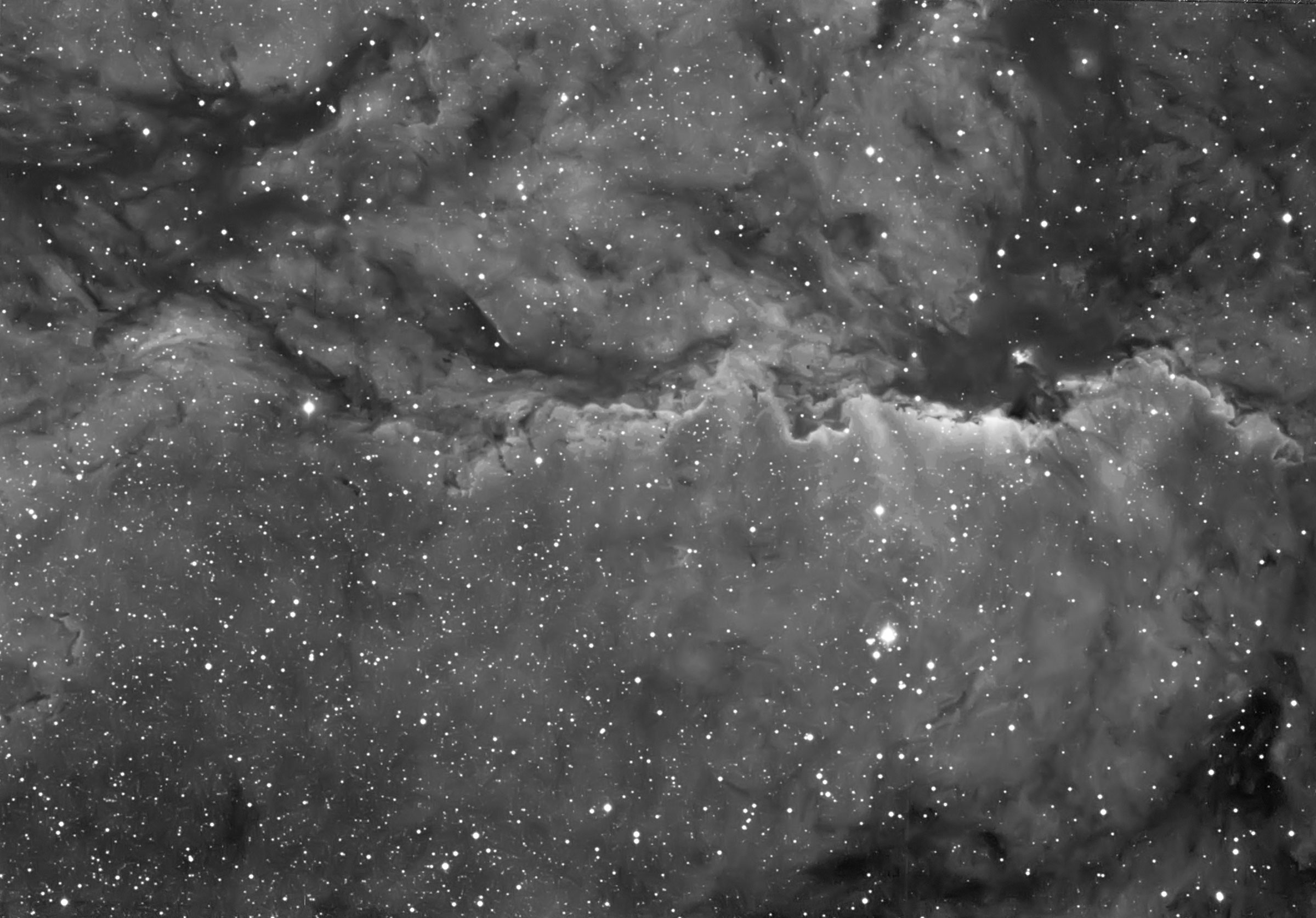
William Optics GT71
- Manufacturer: William Optics
- Telescope type: Refractor
- Focal ratio: f5.9 (f4.72 with field flattener 6A2 * 0.8)
- Focal length: 420mm ( 336mm with field flattener 6A2 * 0.8)
- Aperture:71mm
- Weight: 2.2 Kg
- Resolving Power: 1.62 arc”
- Limiting Magnitude: 11.1
The William Optics Gran Turismo (GT) uses apochromatic triplet objectives with an FPL-53 element to achieve a higher degree of color correction. When using the WO GT71 with cameras including micro 4/3, APS-C, or full-frame sensors, a field flattener or focal reducer is required to ensure sharp images across the entire field.
First Light with the ASI183MC Pro & William Optics GT71
First Light with the ASI183MC Pro & William Optics GT71
William Optics telescope with ASI183MM camera 01
First Light with the ASI183MM Pro & William Optics GT71
William Optics telescope with ASI183MM camera 02
First Light with the ASI183MM Pro & William Optics GT71
William-Optics-GT-71—getting-ready-for-a-night-of-astrophotography
PHD2 Guiding with Star Adventurer Mount – William Optics GT71 / ASI 294 mounted to the Star Adventurer
Tarantula-Nebula-astrophotography-William-Optics-GT71-with-ASI-294MCPRO
Tarantula Nebula astrophotography with William Optics GT71 & ASI 294MCPRO
Andromeda galaxy William Optics GT71 & ASI294MC Pro
Andromeda galaxy William Optics GT71 & ASI294MC Pro
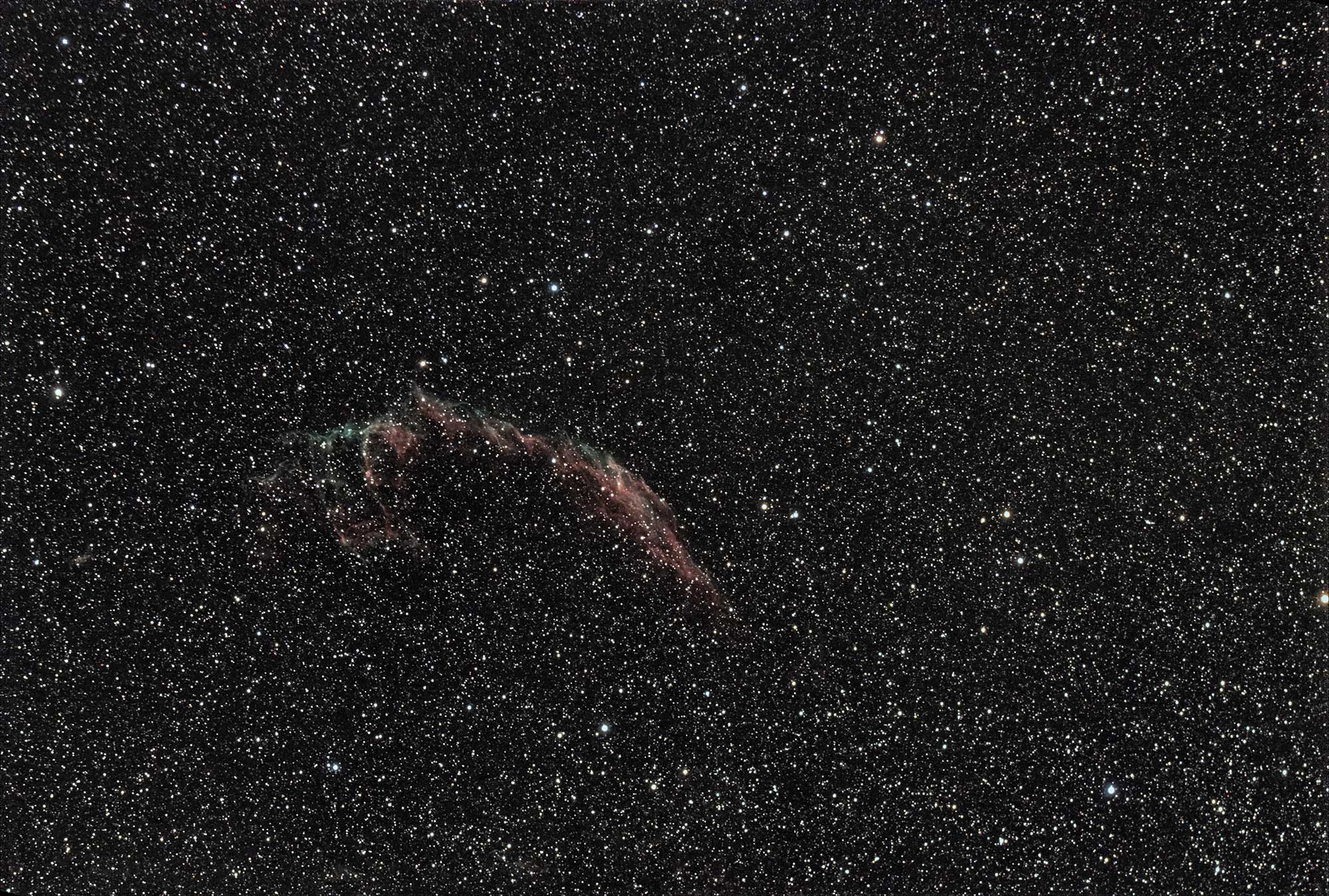
Recent Images

